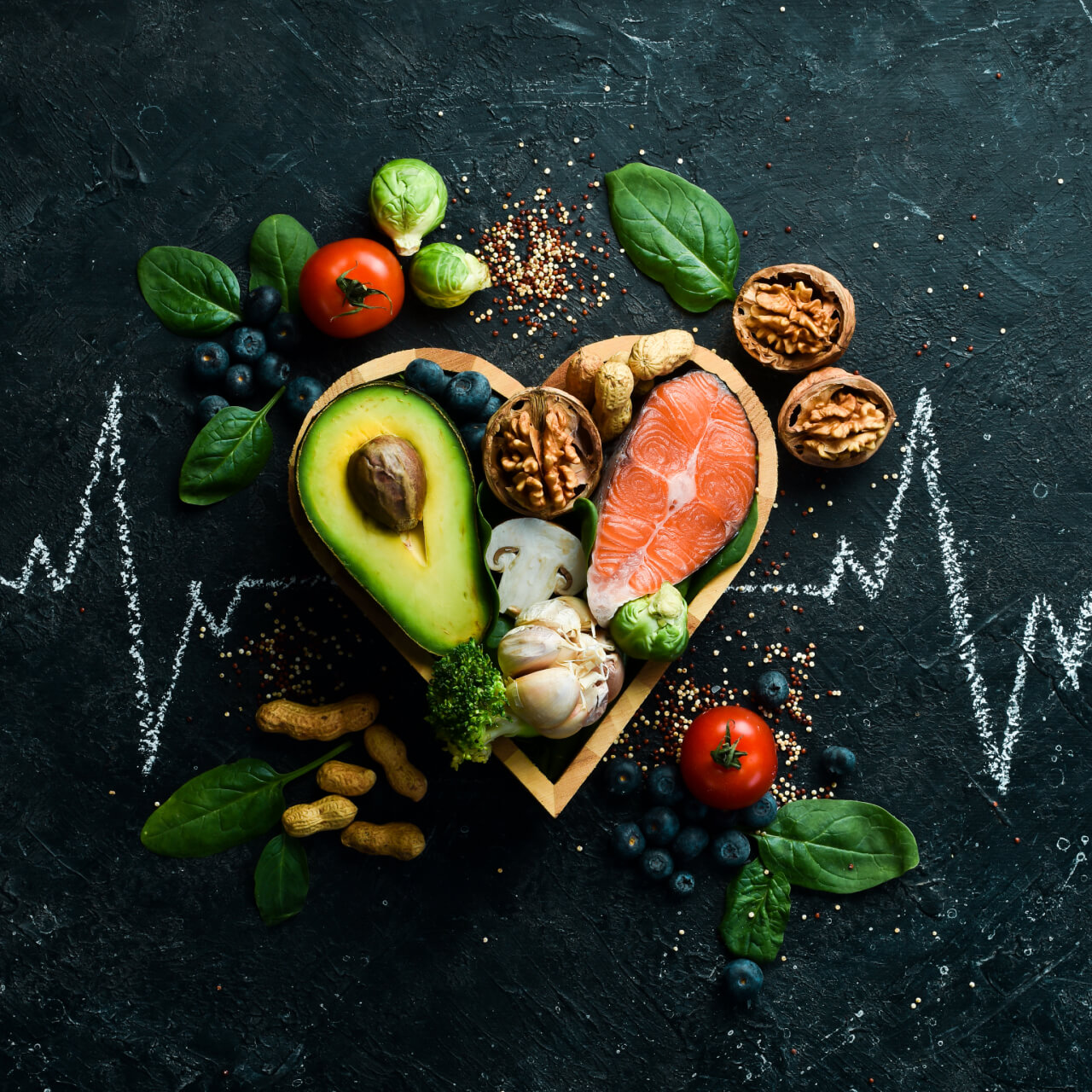Cancer and Nutrition

Cancer is one of the leading causes of death worldwide, affecting millions of people each year. While medical advancements have significantly improved treatment options and survival rates, prevention remains a crucial aspect of reducing the global cancer burden. Nutrition plays a vital role in overall health and has a profound impact on the risk of developing cancer. In this comprehensive blog post, we will explore the intricate relationship between diet and cancer, discuss the key nutrients and foods that can help prevent cancer, and provide practical tips for incorporating these foods into your daily routine.
Understanding Cancer
What is Cancer?
Cancer is a complex group of diseases characterized by the uncontrolled growth and spread of abnormal cells. These cells can invade nearby tissues and form tumors, which can disrupt the normal functioning of the body. There are more than 100 types of cancer, each classified based on the origin of the abnormal cells. Common types include breast cancer, lung cancer, colorectal cancer, and prostate cancer.
How Cancer Develops
Cancer development is a multifactorial process that involves genetic mutations and environmental factors. Mutations in DNA can lead to the malfunction of genes that regulate cell growth and division. Environmental factors, such as exposure to carcinogens (cancer-causing substances), unhealthy lifestyle choices, and poor diet, can further contribute to the development of cancer.
Current Statistics and Impact on Society
The global impact of cancer is substantial, with millions of new cases and deaths reported annually. According to the World Health Organization (WHO), cancer is a leading cause of death worldwide, accounting for nearly 10 million deaths in 2020. The economic burden of cancer is also significant, with costs related to treatment, loss of productivity, and long-term care.
The Role of Nutrition in Cancer Prevention
Overview of Cancer Prevention
Preventing cancer involves reducing exposure to risk factors and adopting healthy lifestyle practices. Diet is a key modifiable risk factor that can influence cancer development. Research has shown that certain dietary patterns and specific nutrients can help protect against cancer and reduce the risk of recurrence.
Impact of Diet on Cancer Risk
Obesity and Cancer
Obesity is a significant risk factor for several types of cancer, including breast, colorectal, and pancreatic cancer. Excess body fat can lead to chronic inflammation, insulin resistance, and hormonal imbalances, all of which can contribute to cancer development. Maintaining a healthy weight through a balanced diet and regular physical activity is crucial for cancer prevention.
Dietary Factors Influencing Cancer Risk
Several dietary factors can influence cancer risk. Sugary beverages and refined grains have been associated with an increased risk of certain cancers. Conversely, diets rich in fruits, vegetables, whole grains, and healthy fats have been potentially linked to a reduced risk.
Diet and Specific Types of Cancer
Breast Cancer
Dietary Factors Influencing Risk
Several dietary factors can influence the risk of breast cancer, including body weight, alcohol consumption, and the intake of certain foods and nutrients. Maintaining a healthy weight and limiting alcohol consumption can help reduce the risk.
Recommended Foods and Nutrients
- Healthy fats: Omega-3 fatty acids from fatty fish, flaxseeds, chia seeds, walnuts
- Antioxidant-rich foods: Berries, leafy greens, citrus fruits, nuts
Colorectal Cancer
Role of Specific Nutrients
Antioxidants and phytochemicals potentially help protect cells from damage.
Foods to Include and Avoid
- Include: Whole grains, fruits, vegetables, legumes, nuts, seeds
- Avoid: Heavily processed meats, refined grains, sugary beverages
Prostate Cancer
Impact of Diet on Prostate Health
Certain dietary factors can influence the risk of prostate cancer, including the intake of fats, fruits, vegetables, and certain nutrients. A diet high in fruits and vegetables and low in unhealthy fats can help reduce the risk.
Beneficial Foods and Nutrients
- Tomatoes: Rich in lycopene, which has been shown to have protective effects against prostate cancer
- Cruciferous Vegetables: Broccoli, cauliflower, Brussels sprouts, cabbage
- Healthy fats: Omega-3 fatty acids from fatty fish, flaxseeds, chia seeds, walnuts
Lung Cancer
Role of Diet in Prevention and Management
While smoking is the primary risk factor for lung cancer, diet can also play a role in prevention and management. A diet rich in fruits, vegetables, and certain nutrients can help support lung health and reduce the risk.
Key Foods and Nutrients
- Fruits and Vegetables: Berries, citrus fruits, leafy greens, cruciferous vegetables
- Antioxidant-rich foods: Nuts, seeds, whole grains
- Omega-3 fatty acids: Fatty fish, flaxseeds, chia seeds, walnuts
Nutrition During Cancer Treatment
Importance of Maintaining Nutrition During Treatment
Maintaining good nutrition during cancer treatment is crucial for supporting the immune system, reducing side effects, and improving overall health and quality of life. Proper nutrition can help patients maintain their strength and energy levels, promote healing, and improve treatment outcomes.
Common Nutritional Challenges During Treatment
Nausea and Vomiting
Nausea and vomiting are common side effects of cancer treatment that can make it difficult to maintain proper nutrition. Strategies to manage these symptoms include eating small, frequent meals, avoiding strong smells, and consuming bland, easy-to-digest foods.
Loss of Appetite
Loss of appetite is another common side effect of cancer treatment. To combat this, patients can try eating smaller, more frequent meals, incorporating nutrient-dense snacks, and focusing on high-calorie, high-protein foods.
Weight Loss and Muscle Wasting
Weight loss and muscle wasting can occur during cancer treatment due to decreased appetite, nausea, and increased metabolic demands. It’s important to consume enough calories and protein to maintain weight and muscle mass. High-calorie, nutrient-dense foods and protein-rich snacks can help meet these needs.
Strategies to Improve Nutrition During Treatment
Small, Frequent Meals
Eating small, frequent meals can help manage side effects like nausea and loss of appetite. This approach can make it easier to consume enough calories and nutrients throughout the day.
High-Calorie, Nutrient-Dense Foods
Focusing on high-calorie, nutrient-dense foods can help ensure adequate nutrition during treatment. Examples include avocados, nuts, seeds, nut butters, dried fruits, and smoothies made with full-fat yogurt or milk.
Managing Side Effects Through Diet
Certain dietary strategies can help manage side effects of cancer treatment. For example, ginger can help reduce nausea, while peppermint tea can soothe an upset stomach. Staying hydrated and consuming electrolyte-rich beverages can help manage dehydration and electrolyte imbalances.
Specific Dietary Recommendations
High-Protein Foods
Protein is essential for muscle maintenance and overall health, especially during cancer treatment. High-protein foods include lean meats, poultry, fish, eggs, dairy products, legumes, nuts, seeds, and soy products.
Healthy Fats
Healthy fats provide a concentrated source of energy and support overall health. Sources of healthy fats include avocados, nuts, seeds, olive oil, and fatty fish.
Hydration
Staying hydrated is important during cancer treatment. Drinking plenty of water, herbal teas, and electrolyte-rich beverages can help maintain hydration and support overall health.
Post-Treatment Nutrition
Importance of Diet in Recovery
After completing cancer treatment, maintaining a healthy diet is important for recovery, rebuilding strength, and supporting the immune system. Proper nutrition can help promote healing, prevent recurrence, and improve overall well-being.
Focus on Rebuilding Strength and Immune Function
Post-treatment nutrition should focus on rebuilding strength and immune function. This includes consuming a balanced diet rich in protein, healthy fats, fruits, vegetables, whole grains, and hydration.
Foods to Promote Healing and Prevent Recurrence
- Protein-rich foods: Meats, poultry, fish, eggs, dairy products, legumes, nuts, seeds
- Antioxidant-rich foods: Berries, citrus fruits, leafy greens, cruciferous vegetables, nuts, seeds, whole grains
- Healthy fats: Avocados, nuts, seeds, olive oil, fatty fish
- Hydration: Water, herbal teas, electrolyte-rich beverages
Myths and Misconceptions About Diet and Cancer
Common Myths About Cancer and Nutrition
Sugar and Cancer Growth
A common myth is that sugar directly feeds cancer cells and promotes their growth. There is evidence that high blood sugar levels can result in elevated insulin levels and obesity, both of which increase the risk of cancer. It’s important to focus on a balanced diet and limit added sugars for overall health.
Organic Foods vs. Conventional Foods
Another myth is that only organic foods can prevent cancer. While organic foods can reduce exposure to pesticides and other chemicals, there is no conclusive evidence that they are more effective than conventional foods in preventing cancer. A diet rich in fruits, vegetables, whole grains, and healthy fats, whether organic or conventional, is key to cancer prevention.
Debunking Misinformation with Scientific Evidence
Scientific evidence supports the importance of a balanced diet rich in fruits, vegetables, whole grains, and healthy fats for cancer prevention. It’s essential to rely on evidence-based information and consult with healthcare providers for personalized dietary advice.
Practical Tips for a Cancer-Preventive Diet
Planning Balanced Meals
Planning balanced meals that include a variety of nutrient-dense foods is crucial for cancer prevention. Aim to fill half your plate with fruits and vegetables, a quarter with whole grains, and a quarter with lean protein.
Incorporating a Variety of Foods
Eating a diverse range of foods ensures you get a wide array of nutrients and protective compounds. Include different colors and types of fruits and vegetables, whole grains, legumes, nuts, seeds, and healthy fats in your diet.
Importance of Physical Activity in Conjunction with Diet
Physical activity is an important component of cancer prevention. Regular exercise can help maintain a healthy weight, reduce inflammation, and support overall health. Aim for at least 150 minutes of moderate-intensity aerobic activity or 75 minutes of vigorous-intensity aerobic activity per week, along with muscle-strengthening activities on two or more days per week.
Tips for Meal Prepping and Making Healthier Choices
- Meal Prepping: Plan and prepare meals in advance to ensure you have healthy options readily available. Batch cooking and portioning meals can save time and reduce the temptation to choose unhealthy options.
- Making Healthier Choices: Focus on whole, minimally processed foods. Read labels to avoid added sugars, unhealthy fats, and excessive sodium. Incorporate more plant-based meals into your diet and experiment with new recipes to keep your meals interesting and nutritious.
Conclusion
Nutrition plays a vital role in cancer prevention and management. A balanced diet rich in fruits, vegetables, whole grains, healthy fats, and lean proteins can help reduce the risk of cancer and support overall health. By making informed dietary choices and adopting healthy lifestyle practices, you can take proactive steps towards preventing cancer and promoting long-term well-being. Remember to consult with healthcare providers for personalized advice and guidance on your nutritional needs.
Sources:
- Sugar and Cancer | UCSF Osher Center for Integrative Health
- ESPEN practical guideline: Clinical Nutrition in cancer – Clinical Nutrition (clinicalnutritionjournal.com)
“At Dynamic Wellness Solutions, we believe in empowering you with the knowledge and tools to make informed choices that resonate with your unique well-being journey. Our commitment to transparency ensures that you navigate the intricate world of nutrition with clarity, embracing the transformative power of honest and truthful information. Join us on this dynamic path to wellness, where your health and vitality are at the heart of every decision we make together.”


